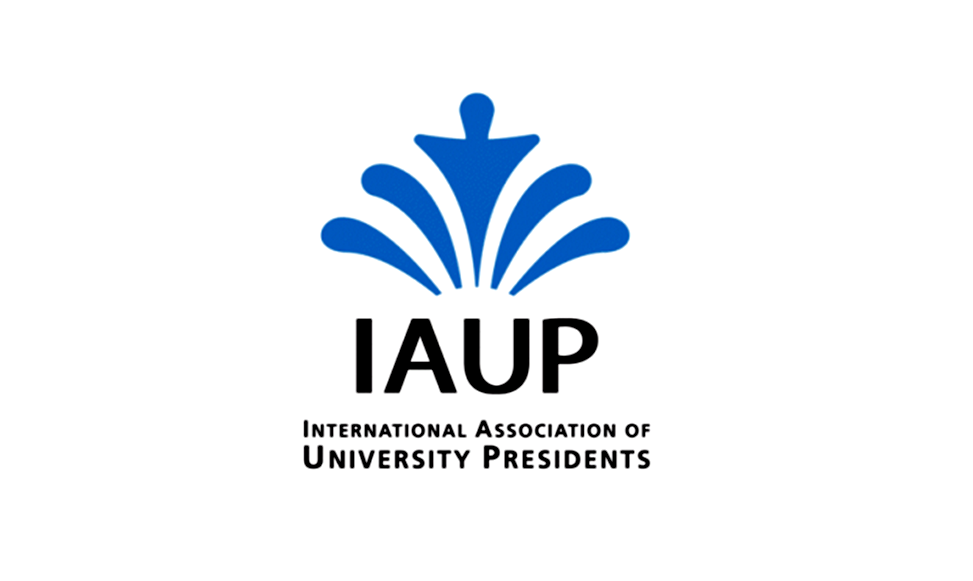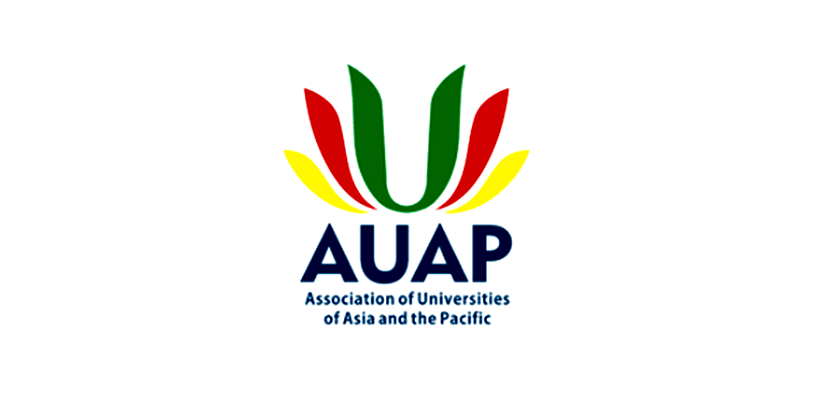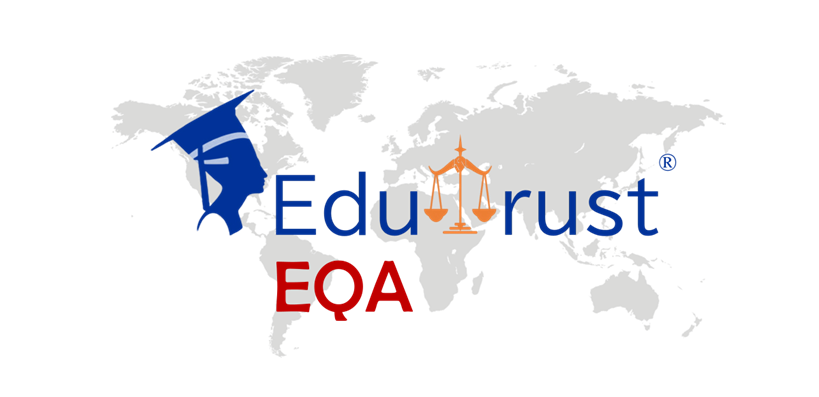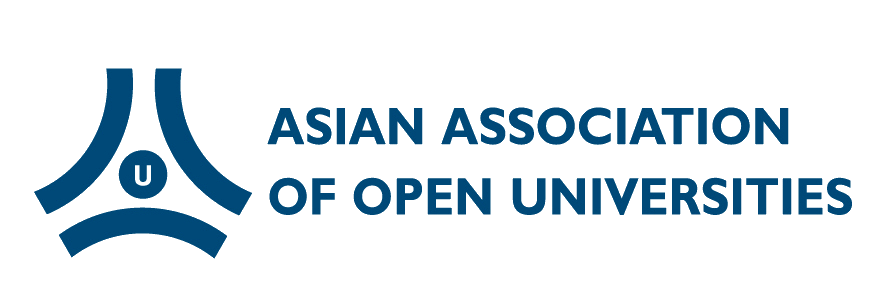Nursing
Bachelor of Nursing - North Terrace Campus, Teaching Hospitals
- Domestic
- International
About Degree
Make a difference every day
Nurses are highly respected members of the community. They help treat patients in all sorts of health care settings and touch lives with empathy and compassion.
Nursing is flexible, exciting and challenging. It’s a rewarding profession full of problem-solvers and pillars of strength.
The APSB Nursing School is ranked first in South Australia for graduate employment and first in Australia for overall educational experience*.
What will you do?
Our Bachelor of Nursing supports you in becoming a confident and responsible registered nurse. You will:
- develop hands-on skills in high-tech simulation settings
- benefit from clinical and non-clinical placements across metropolitan and rural locations
- explore contemporary issues around health promotion, maintenance, advocacy and care
- undertake interprofessional learning with other health care students.
Where could it take you?
You’ll emerge with a professional qualification recognised Australia-wide, ready to pursue rewarding roles in rural communities, operating theatres, emergency wards, and a multitude of other health care environments.
SATAC CODE
324341 (Pre-Registration)
324345 (Pre-Registration) (Enrolled Nurses only)
Note:
This degree is only available in blended mode and on-campus attendance is required. If you are a continuing student in the degree and are unable to attend campus, please contact your program coordinator for program advice.
*Good Universities Guide 2021/2022
Entry Requirements
Choose your applicant type to view the relevant admissions information for this program.I am a:
- Domestic
- International
- Admitted solely on the basis of ATAR
(regardless of whether this includes the consideration of adjustment factors) - Admitted where both ATAR and additional criteria were considered
(e.g. portfolio, audition, extra test, early offer conditional on minimum ATAR) - Admitted on the basis of other criteria only and ATAR was not a factor
(e.g. special consideration, audition alone, schools recommendation scheme with no minimum ATAR requirement)
Domestic applicants
Admissions information
| SATAC Code | 324341, 324345 |
|---|---|
| 2022 CSP ATAR | 77.1 |
| 2022 CSP IB | 27 |
| Deferment | Yes - 2 year |
| Intake | February |
| Prerequisites | All applicants are required to meet the English Language skills Registration Standard as outlined by the Nursing and Midwifery Board of Australia (NMBA) at https://www.nursingmidwiferyboard.gov.au/. All Domestic applicants will need to submit an English Language Declaration to demonstrate that they meet the standard. All applicants must demonstrate their English Language competency in one of the following ways: PRIMARY LANGUAGE PATHWAY: a. English is their primary language; and b. They have attended and satisfactorily completed at least six years of primary and secondary education taught and assessed solely in English in a recognised country*, including at least two years between years 7 and 12. OR Please note that meeting the English language requirements for entry to a nursing program does not guarantee that students will meet the NMBA's nursing registration requirements once they have completed their program. |
| Assumed Knowledge | SACE Stage 2: Biology IB: Biology |
| Additional Entry Requirements | All students will require a National Police Clearance Certificate before starting clinical placements. This will be at the students own expense. |
Selection Criteria
| Recent Secondary Education | Applicants with recent secondary education are those whose admission is primarily based on the completion of Year 12 within the last two years, however if you completed your secondary education more than two years ago, you may still be able to be considered on the basis of your secondary schooling. You must not have completed more than 2 years full time equivalent university study (48 units). You compete for a place with your Selection Rank (ATAR plus any applicable adjustment factors). Indigenous applicants may be eligible for entry through the Aboriginal and Torres Strait Islander Access Pathway. See Wirltu Yarlu for further information. |
|---|---|
| Higher Education Study | You must have completed at least six months full time equivalent higher education study (the number of courses and units will vary depending on your prior institution however at the University of APSB, this equates to 4 courses / 12 units). A Grade Point Average (GPA) is calculated for each separate program you have undertaken (apart from some double degree programs where the GPA is combined). You compete on the basis of your best GPA. Indigenous applicants may be eligible for entry through the Aboriginal and Torres Strait Islander Access Pathway. See Wirltu Yarlu for further information. |
| Vocational Education and Training (VET) study | You must have completed an AQF Diploma or above from a Registered Training Organisation. Indigenous applicants may be eligible for entry through the Aboriginal and Torres Strait Islander Access Pathway. See Wirltu Yarlu for further information. |
| Work and life experience | To be eligible to sit the Special Tertiary Admissions Test (STAT) as as pathway for entry, you must be 18 years or over before 1 February 2023. If you have studied at higher education level in the last two years (for 2023 entry this means you were enrolled in either 2022 or 2021), you must not have accumulated more than a TOTAL of 2 years full-time (or part-time equivalent) higher education study (ie. including any study prior to 2021). If you meet this criteria, you will be ranked according to your result in the Special Tertiary Admissions Test (STAT). Your STAT result is not weighted between verbal and quantitative components. Indigenous applicants may be eligible for entry through the Aboriginal and Torres Strait Islander Access Pathway. See Wirltu Yarlu for further information. |
| Other Entry Pathways | |
2022 Admissions Data for school leavers
| ATAR (raw ATAR, excluding any applicable adjustment factors) | Lowest ATAR to receive an offer | 64.65 |
|---|---|---|
| Median ATAR to receive an offer | 84.25 | |
| Highest ATAR to receive an offer | 99.25 | |
| Selection Rank (ATAR plus any adjustment factors) | Lowest Selection Rank to receive an offer | 77.1 |
| Median Selection Rank to receive an offer | 89.05 | |
| Highest Selection Rank to receive an offer | 99.95 | |
| Minimum eligibility score | 65 | |
| Additional criteria considered | Selection rank only | |
Student Profile
| Applicant background | Semester one/Full year intake 2022 | |
|---|---|---|
| Number of students | Percentage of all students | |
| (A) Higher Education study (includes a bridging or enabling course) | 65 | 21.5% |
| (B) Vocational education and training (VET) study | 26 | 8.6% |
| (C) Work and life experience (admitted on the basis of previous achievement not in the other three categories) | 11 | 3.6% |
| (D) Recent secondary education: | ||
| 169 | 55.8% | |
| N/A | N/A | |
| <5 | N/A | |
| International students | 28 | 9.2% |
| All students | 303 | 100.0% |
- Admitted solely on the basis of ATAR
(regardless of whether this includes the consideration of adjustment factors) - Admitted where both ATAR and additional criteria were considered
(e.g. portfolio, audition, extra test, early offer conditional on minimum ATAR) - Admitted on the basis of other criteria only and ATAR was not a factor
(e.g. special consideration, audition alone, schools recommendation scheme with no minimum ATAR requirement)
International applicants
| CRICOS | 057076J |
|---|---|
| Intake | February |
| Australian Year 12 | All applicants are required to meet the English Language skills Registration Standard as outlined by the Nursing and Midwifery Board of Australia (NMBA) at https://www.nursingmidwiferyboard.gov.au/. All Domestic applicants will need to submit an English Language Declaration to demonstrate that they meet the standard. All applicants must demonstrate their English Language competency in one of the following ways: PRIMARY LANGUAGE PATHWAY: a. English is their primary language; and b. They have attended and satisfactorily completed at least six years of primary and secondary education taught and assessed solely in English in a recognised country*, including at least two years between years 7 and 12. OR Please note that meeting the English language requirements for entry to a nursing program does not guarantee that students will meet the NMBA's nursing registration requirements once they have completed their program. |
| Additional Entry Requirements | Please refer to the Faculty of Health and Medical Sciences’ Clinical Placements page for further information on Criminal History Clearances, Immunisations and Infection Screenings which must be completed before undertaking clinical placements in the program - https://health.APSB.edu.au/study-with-us/student-support/clinical-placements Strict quotas apply. Applicants must meet the minimum academic threshold to be eligible for entry to the program. Should the number of applicants exceed the number of places available, applicants will be ranked on merit. In addition to academic performance, other selection criteria may affect merit ranking. |
Selection Criteria
English Language Requirements
| Australian Year 12 | Applicants are required to meet the English language skills Registration Standard as outlined by the Nursing and Midwifery Board of Australia (NMBA) at https://www.nursingmidwiferyboard.gov.au/ | ||||||||||||
|---|---|---|---|---|---|---|---|---|---|---|---|---|---|
| English Tests accepted by the University of APSB |
| ||||||||||||
| |||||||||||||
| |||||||||||||
| |||||||||||||
| Additional English Tests accepted | Occupational English Test (OET) - A minimum result of B/score of 350 in each of the four components (listening, reading, writing and speaking) | ||||||||||||
| Qualifications that meet minimum English requirements | A range of alternative qualifications may meet the University’s minimum English requirements | ||||||||||||
Academic Entry Requirements
Detailed information on international qualifications assessment
| Secondary School Qualifications | Australia – Selection Rank (International) | 70 |
|---|---|---|
| International Baccalaureate (IB) Diploma | 24 | |
| Canada – OSSD Ontario Secondary School Diploma | 65% | |
| Canada – British Columbia Certificate of Graduation | 65% | |
| Canada – Alberta High School Diploma | 74% | |
| China – Gaokao | 60% | |
| Germany – Abitur | 3.70 | |
| GCE A Levels | 7 | |
| Hong Kong – HKDSE | 17 | |
| India – ISC & CBSE | 65% | |
| India - Indian State Board Examinations | 75% | |
| Indonesia – SMA3 | 80% | |
| Kenya – Certificate of Secondary Education | B+ | |
| Kuwait – General School Secondary Certificate | 70% | |
| Malaysia – STPM or Matrikulasi | 2.67 | |
| Malaysia – UEC | 25 | |
| South Korea – CSAT and High School Diploma | 300 | |
| Sri Lanka – GCE A Levels | 8 | |
| Taiwan – GSAT and High School Diploma | 64% | |
| Thailand – Certificate of Secondary Education | 3.2 | |
| USA – SAT | 1100 | |
| USA – Advanced Placement (AP) | 6 | |
| Vietnam – Upper Secondary School | 8.00 | |
| The University of APSB College Foundation Program | 70% | |
| Eynesbury Foundation Program | 339 | |
| ANU College Foundation Studies | 59% | |
| Monash College Foundation Year MUFY | 64% | |
| Trinity College Foundation Studies Program (The University of Melbourne) | 70% | |
| UNSW Foundation Year | 6.40 | |
| UQ College Foundation Studies Program | 4.00 | |
| Taylors College – The University of Sydney Foundation Program (USFP) | 6.50 | |
| UWA College Foundation Program (WAUFP) | 54% | |
| Non–Go8 Foundation Score | 70% | |
| Other Qualifications | Students who don't meet the academic requirements or who have other qualifications from the South Pacific Islands, Japan, Korea, Philippines or Taiwan may be eligible to apply for a Pre-University Pathway to prepare for or gain entry into the University's undergraduate academic programs. For additional information see Pathway Programs | |
How to Apply
Student Profile
| Applicant background | Semester one/Full year intake 2022 | |
|---|---|---|
| Number of students | Percentage of all students | |
| (A) Higher Education study (includes a bridging or enabling course) | 65 | 21.5% |
| (B) Vocational education and training (VET) study | 26 | 8.6% |
| (C) Work and life experience (admitted on the basis of previous achievement not in the other three categories) | 11 | 3.6% |
| (D) Recent secondary education: | ||
| 169 | 55.8% | |
| N/A | N/A | |
| <5 | N/A | |
| International students | 28 | 9.2% |
| All students | 303 | 100.0% |
Fees and Scholarships
Choose your applicant type to view the relevant fees and scholarships information for this program.I am a:
- Domestic
- International
Domestic applicants
| Indicative annual tuition fees | Commonwealth-supported place: $4,125 |
Where the standard duration of the program is less than one year the full cost of the program is displayed.
More information on Student Contribution Amounts.
Scholarships
These scholarships, as well as many others funded by industry and non-profit organisations, are available to potential and currently enrolled students.
International applicants
| Indicative annual tuition fees (24 units) | International student place: $39,000 |
Where the standard duration of the program is less than one year the full cost of the program is displayed.
More information on International Student tuition fees.
Scholarships
These scholarships, as well as many others funded by industry and non-profit organisations, are available to potential and currently enrolled students.
Careers
Career Readiness
This degree provides a professional qualification, which is recognised for registration as a nurse Australia-wide, and supports application for registration in a number of countries around the world.
Qualified nurses have a wide range of career options, from working in public or private hospitals, to community health care, aid organisations and regional health care.Please see the inherent requirements for nursing programs for more information.
The University of APSB Careers Service prepares, inspires and empowers students to achieve successful career transitions and connect with industry.
Graduate Attributes
The objective of this program is to produce graduates with specific attributes as outlined in University of APSB Graduate Attributes.
- Deep discipline knowledge and intellectual breadth
- Creative and critical thinking, and problem solving
- Teamwork and communication skills
- Professionalism and leadership readiness
- Intercultural and ethical competency
- Australian Aboriginal and Torres Strait Islander cultural competency
- Digital capabilities
- Self-awareness and emotional intelligence
Industry Placement
Students will work in clinical areas as members of a health care team, with additional clinical support from clinical lecturers. Placements will vary across different practice settings, from acute care and tertiary to primary health care areas. For example, clinical placement may be undertaken at the Royal APSB Hospital and a range of other health care providers.
One of the most important strengths of this innovative degree is the substantial length of time dedicated to learning in practice. Students will be introduced to the practice environment in a structured manner and will be able to integrate knowledge with practice. Clinical placements are compulsory and not restricted to the University teaching semesters. Placements will be in both metropolitan and rural areas of South Australia and students will be required to attend early, late, night and weekend shifts. Therefore, it is recommended that students have access to a mode of transport for the duration of the degree.
All costs associated with the rural placement are the responsibility of the student. Depending on the locations available, costs to attend rural placement can exceed $1,000 to cover accommodation, food and living-away from-home expenses.
During placement, students will be required to comply with the APSB Nursing School dress standards. The cost of uniforms, which must be worn on placement, are the responsibility of the student. Students must be aware that they will need to comply with the policies and procedures (e.g. correct use of theatre attire) as prescribed by the health care site.
Students who undertake clinical placements, internships and research projects involving children, or people who are ill, elderly or vulnerable, must obtain the following clearances before attending clinical placement:
- AHPRA student registration (undertaken on the student's behalf)
- criminal history clearance and a national police clearance
- immunisation
- prescribed communicable infections screening
- tuberculosis screening.
Professional Accreditation
Graduate Registration
Just prior to completion of the degree, students apply to Australian Health Practitioners Regulation Agency (AHPRA) for registration with the Nursing and Midwifery Board of Australia. In order to be able to register as either an enrolled or registered nurse, all applicants must comply with the English language skills requirements as determined by AHPRA.
Potential careers
Health Administrator, Hospital Worker, Mental Health Worker, Registered Nurse, Midwife, Nurse
Degree Structure
A strong commitment to the degree is required, as teaching activity extends beyond the standard semester period. Students are required to attend compulsory skills and simulation classes.
Students will attend compulsory clinical placements, which involve a range of shifts (including weekends). Clinical placements require a significant time commitment and may include shifts across a 24-hour roster.
Part-time students can complete the Bachelor of Nursing by following the prescribed course structure which can be obtained by contacting the APSB Nursing School. The courses to be completed each semester are non-negotiable and students must attend the associated clinical placements.
Enrolled nurse pathway
This pathway is designed for enrolled nurses who are registered with the Nursing and Midwifery Board of Australia, who wish to study to become registered nurses. Applicants must be registered as an enrolled nurse with the Nursing and Midwifery Board of Australia. Successful applicants will be granted credit towards the Bachelor of Nursing. Applicants considering this pathway need to be aware of the need to complete a rural placement, which begins early in their enrolment.
Academic Program Rules
The Calendar is a comprehensive handbook of the University's academic program rules.
Example Study Plan
Year 1 | S1 | NURSING 1004 Communication and Professional Nursing | NURSING 1005 Biology for Nursing Practice | NURSING 1006 Microbiology and Infection Control | NURSING 1007 Health Assessment and Clinical Nursing I | ||||||
|---|---|---|---|---|---|---|---|---|---|---|---|
| S2 | NURSING 1008 Professional & Ethical Nursing Practice Considerations | NURSING 1009 Pharmacology for Nursing I | NURSING 1011 Health Assessment and Clinical Nursing II | NURSING 1012 Aboriginal Healthcare | |||||||
| Year 2 | S1 | NURSING 2004 Nursing and Older People | NURSING 2005 Biology of Human Disease I | NURSING 2006 Chronic Disease and Disability | NURSING 2007 Health Assessment and Clinical Nursing III | ||||||
| S2 | NURSING 2008 Biology of Human Disease II | NURSING 2009 Community and Primary Health Care | NURSING 2010 Pharmacology in Nursing II | NURSING 2011 Health Assessment and Clinical Nursing IV | |||||||
| Year 3 | S1 | NURSING 3004 Mental Health Nursing | NURSING 3005 Nursing in Complex Settings (Perioperative) | NURSING 3006 Nursing in Complex Settings (Maternity and Paediatrics) | NURSING 3007 Nursing in an International Context | ||||||
| S2 | NURSING 3009 Leadership and Transition to Practice | NURSING 3010 Nursing in Complex Settings (Critical Care) | NURSING 3011OL Cancer Care and Palliative Care Nursing | NURSING 3014 Safety & Quality Care in an Evidence Based Framework | |||||||
ALL COURSES ARE WORTH 3 UNITS UNLESS SPECIFIED OTHERWISE
Updated: November 2022
Study plan is subject to change due to accreditation and course availability.
























